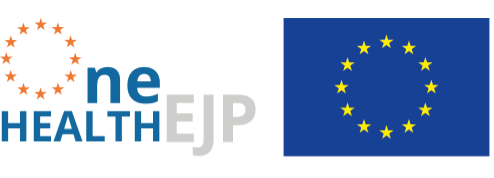25 Rue du Docteur Roux, Paris 15e Arrondissement, Île-de-France, France
Daphne Jackson Road, Guildford, England, United Kingdom
Madrid, Comunidad de Madrid, Spain

The Project #METAPRO
| Start: | March 2020 |
| Duration: | 3 Years |
| Domain: | Antimicrobial Resistance |
| Members: | UCM- Spain, University of Surrey-UK |
| Contact: | Prof Bruno Gonzalez-Zorn |
METAPRO: Metagenomics and genomic approaches for the prevention of the spread of plazomicin resistance in humans, animals and the environment
Antimicrobial resistance is a major Public Health problem. First line antibiotics are starting to be ineffective in many cases against bacterial infections, and the rate at we produce novel antibacterial compounds is not enough to cope with the rate at which the bacteria become resistant. Few antibiotics have been released to the market in the last years, being mostly variations of drugs already in use. In this context, aminoglycosides have risen as a promising solution due to their relative easiness of modification to produce novel effective antibiotics capable of overcome the action of the most prevalent resistance mechanisms. Using this methodology, plazomicin was released to the market in 2018 after being especially engineered to resist the action of most aminoglycoside modifying enzymes, paving the way for the production of novel compounds in this antimicrobial class.
However, the emergence of the acquired 16S rRNA methyltransferases, a resistance mechanism based on the modification of the ribosomal target of the aminoglycosides, endangers the application and development of these next generation aminoglycosides. Since their discovery in 2005, twelve of these enzymes have been identified, conferring high level of resistance to all the clinically relevant aminoglycosides. The prevalence of this resistance mechanism is still considered low, but its common association to resistance genes to first line antibiotics in mobile genetic elements presages a widespread of the acquired 16S rRNA methyltransferases in the upcoming years.
In addition, the study of resistance determinants has been mainly focused on pathogenic bacteria. However, in the last years the spotlight is starting to shift also to non-pathogenic bacteria as a potential source of the antimicrobial resistance genes that we observe in the clinic. The development of the metagenomics approach, where the genomic material of all the microbes present in a certain environment is directly analysed, has boosted the study of resistance determinants in non-pathogenic bacteria, offering a more accurate prevalence levels of these mechanisms, and enabling the prediction of the potential dissemination routes that these genes undergo to end up in pathogenic bacteria.
Therefore, the main objective of the METAPRO PhD project is the application of a metagenomic approach for the study of the resistance determinants to next generation aminoglycosides in ecological niches from human, animal, and environmental origins. We aim to:
- Evaluate the prevalence of next generation aminoglycosides resistance genes in the different ecological settings.
- Elucidate the bacterial and ecological reservoirs of these resistance determinants.
- Predict the potential dissemination routes and describe the clones and mobile genetic elements that entail a major risk of aminoglycoside inefficacy.
- Analyse the effect of the use of antibiotics in the promotion of selection. of aminoglycoside resistance genes.
Project Assets
Bosco was awarded 3rd prize for the best oral communication at VIII VETINDOC – PhDay Complutense 2022.
Bosco wrote a blog post in June 2022 for the “One Health EJP PhD Life” campaign. Read his article: A day in the life of Bosco Rodríguez Matamoros.
Bosco was awarded a One Health EJP Short Term Mission that he completed in 2023.
Interbacterial mobilization of aac(3)-IV in the gut microbiome. Oral presentation. XIII Reunión del Grupo de Microbiología Molecular of the Spanish Society of Microbiology, Granada, Spain. 7-9th September 2022.
Metagenomic analysis of the effects of apramycin on the microbiome. Oral presentation. VIII VETINDOC – PhDay Complutense 2022, Madrid, Spain. June 2022.
Matamoros, B. R., Serna, C., Moyano, G., Wedel, E., Pulido-Vadillo, M., Montero, N., & Gonzalez-Zorn, B. (2022). Metagenomic analysis reveals that apramycin restructures the resistome and favors interbacterial spread of aac(3)-IV gene. Poster presentation. 32nd European Congress of Clinical Microbiology and Infectious Diseases (ECCMID), Lisbon, Portugal. April 2022. DOI: https://doi.org/10.5281/zenodo.7561960
Metagenomic sequencing analysis of the effects of apramycin in the poultry gut microbiome. Oral presentation. One Health EJP Annual Scientific Meeting 2022, Orvieto, Italy. 11-13th April 2022.
Matamoros, B. R., Serna, C., Hernández, A., Montero, N., Garcia, M., Blanco, J. L., & Gonzalez-Zorn, B. (2021). First report of the acquired 16S rRNA methyltransferase armA in an Enterobacter hormaechei ST171 isolated from a horse. Poster presentation. 31st European Congress of Clinical Microbiology and Infectious Diseases (ECCMID). 9th July 2021. DOI: https://doi.org/10.5281/zenodo.7561938
Matamoros, B. R., Serna, C., Hernández, A., Montero, N., Garcia, M., Blanco, J. L., & Gonzalez-Zorn, B. (2021). One Health: ArmA and Enterobacter hormaechei ST171. Oral presentation. XXVIII Congreso de la Sociedad Española de Microbiología (SEM). 28th June 2021. DOI: https://doi.org/10.5281/zenodo.7561901
Matamoros, B. R., Serna, C., Delgado-Blas, J. F., Wedel, E., Montero, N., Garcia, M. E., Blanco, J. L., & Gonzalez-Zorn, B. (2021). Acquired 16 rRNA methyltransferase ArmA maintained for a decade in a veterinary hospital via an IncR plasmid. Poster presentation. One Health EJP Annual Scientific Meeting 2021, Copenhagen Denmark & online. 9-11th June 2021. DOI: https://doi.org/10.5281/zenodo.7561877
Matamoros, B. R., Glaser, P., La Ragione, R. M., & Gonzalez-Zorn, B. (2020). METAPRO: Metagenomics and genomic approaches for the prevention of the spread of plazomicin resistance in humans, animals and the environment. Poster presentation. One Health EJP Annual Scientific Meeting 2020, online. 27-29th May 2020. DOI: https://doi.org/10.5281/zenodo.7561834

Bosco Rodríguez Matamoros


